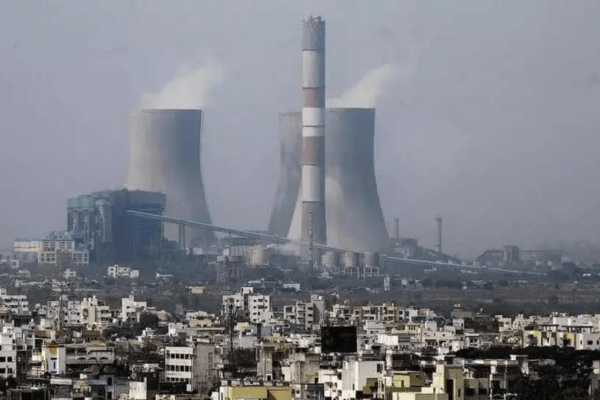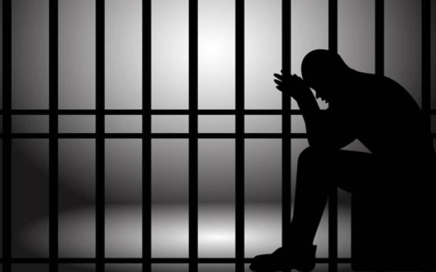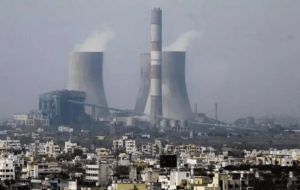
Nagpur: On one hand the Ministry of Environment Forest and Climate Change (MoEF&CC) has included Nagpur in the list of 131 non-attainment cities for its poor air quality, yet MahaGenco is keen on starting a new thermal power plant at Koradi, which is in the vicinity of Nagpur city.
In a recent development, Maharashtra Pollution Control Board (MPCB) has called a public hearing on May 29 for any objections against the ‘extension’ of Koradi 2×660 MW Coal Based Supercritical Thermal Power Plant in the existing Koradi Thermal Power Plant premises.
According to provisions of MoEF&CC amended notification dated December 1, 2009, MahaGenco has requested MPCB to conduct an environmental public hearing for their proposed plant. “This environmental public hearing is being organised according to the TOR (Terms of Reference) granted by MoEF&CC to MahaGenco on June 20, 2020,” the notice further stated. Further, “All persons, including citizens, environmental groups, and locals at the site affected by the project can participate in the public hearing, physically or virtually.” The public hearing will be conducted physically at the site as well as through online mode using webex platform.
However, the proposed public hearing by the Maharashtra Pollution Control Board (MPCB) in the open at the site in Koradi during the scorching summer is not only inconvenient but also a form of torture for the public who are expected to attend in large numbers. This decision has raised concerns among experts, who question the logic behind holding such an important event under such unfavorable conditions.
The choice of conducting the public hearing in an open area exposes attendees to extreme heat and discomfort. Nagpur, known for its notorious summer temperatures, can reach unbearable levels during the day, particularly around 12:30 pm when the public hearing is scheduled. Subjecting the public to such oppressive conditions not only undermines their ability to fully engage and participate but also puts their health and well-being at risk.
The decision to hold the public hearing at the actual site in Koradi may have been intended to provide a firsthand experience of the location and its environmental impact. However, the adverse weather conditions could potentially deter many concerned citizens from attending, thereby limiting the diversity and inclusivity of the participants. This raises doubts about the fairness and transparency of the public hearing process.
Some experts argue that choosing a more suitable time and venue for the public hearing would be more conducive to public engagement and participation. By holding the event in a shaded or air-conditioned facility, the discomfort caused by the scorching summer could be alleviated, encouraging a broader representation of the community to attend and voice their concerns.
Furthermore, conducting the public hearing in an open area under extreme weather conditions may be seen as a deliberate attempt to discourage public involvement and limit dissenting voices. Critics argue that this decision undermines the democratic principles of public participation and transparency, as it creates barriers for individuals who are unable or unwilling to endure the hardships imposed by the summer heat.
The decision to hold the public hearing in an open area at 12:30 pm during the scorching summer in Koradi has faced criticism from experts who question its logic. The discomfort and potential health risks posed to attendees raise concerns about the fairness and inclusivity of the process. Considering alternative venues and times that prioritize public comfort and maximize participation would enhance the credibility and effectiveness of the public hearing.
Mah Govt has banned events between 12 and 5 pm during summer
The Maharashtra Government has banned parties and events in open places between 12 p.m. and 5 p.m. till the State’s heat level decreases. This decision comes after 14 people died from sunstroke at an award ceremony in Navi Mumbai recently. Ten of those who died were women, and four were men. Seven people were sent to the hospital to be treated.
The incident occurred at the Maharashtra Bhushan Award celebration, which was hosted by the state government in Navi Mumbai. Several lakh people attended the event, which was held on an open field in Khargar. The majority of them in attendance were supporters of social worker Appasaheb Dharmadhikari, who received the Maharashtra Bhushan Award. The prize was presented by Union Home Minister Amit Shah, who was also present at the occasion.
Residents, NGOs unite in fight against Koradi Plant expansion
A coalition of 15 NGOs, activists, and members of a residential society, operating under the banner of ‘Koradi Climate Crisis,’ has voiced serious concerns regarding the proposed expansion of the Koradi Thermal Power Plant. The organizations highlighted the severe damage being caused to the environment and public health by the existing plant. They warned of resorting to democratic and legal means to protect the region from further pollution.













